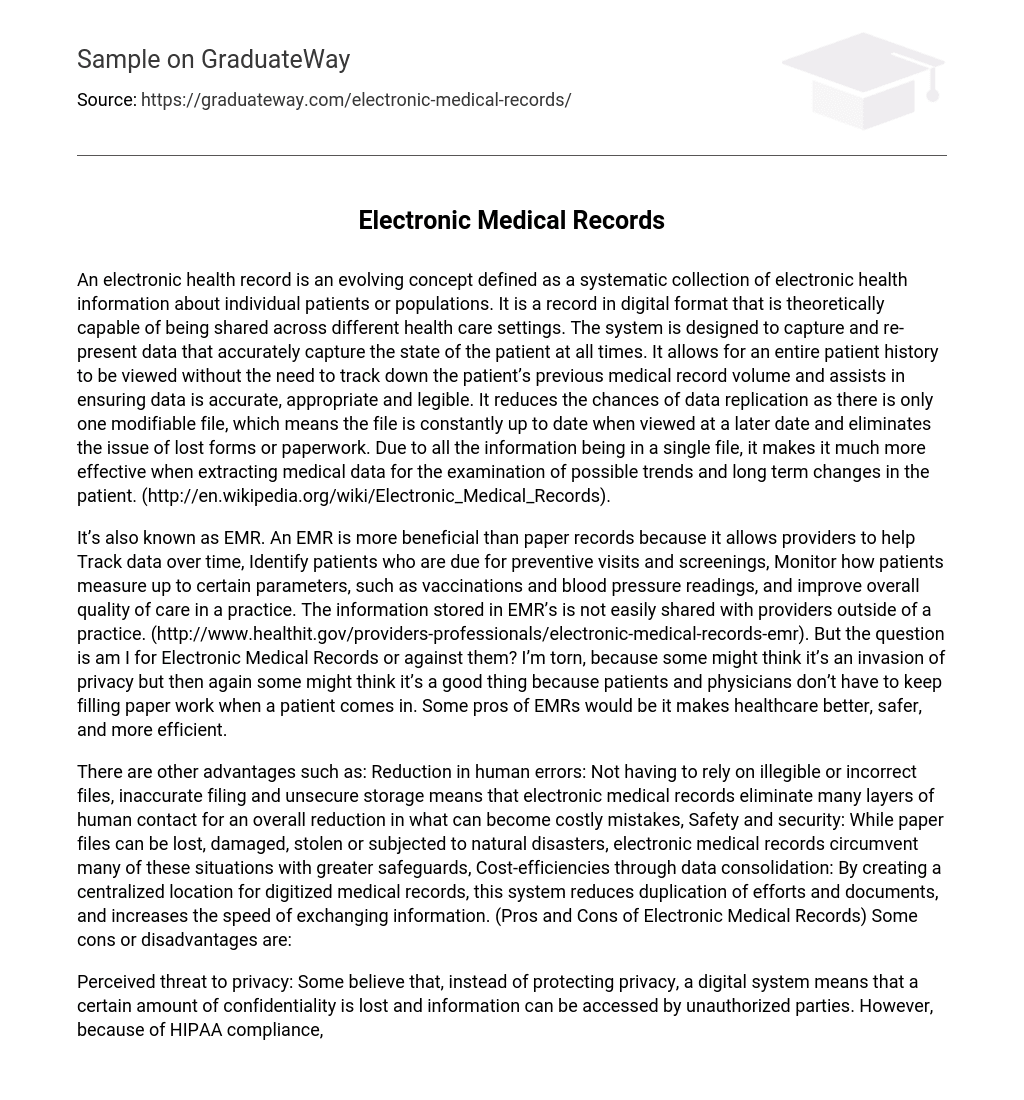An electronic health record is an evolving concept defined as a systematic collection of electronic health information about individual patients or populations. It is a record in digital format that is theoretically capable of being shared across different health care settings. The system is designed to capture and re-present data that accurately capture the state of the patient at all times. It allows for an entire patient history to be viewed without the need to track down the patient’s previous medical record volume and assists in ensuring data is accurate, appropriate and legible. It reduces the chances of data replication as there is only one modifiable file, which means the file is constantly up to date when viewed at a later date and eliminates the issue of lost forms or paperwork. Due to all the information being in a single file, it makes it much more effective when extracting medical data for the examination of possible trends and long term changes in the patient. (http://en.wikipedia.org/wiki/Electronic_Medical_Records).
It’s also known as EMR. An EMR is more beneficial than paper records because it allows providers to help Track data over time, Identify patients who are due for preventive visits and screenings, Monitor how patients measure up to certain parameters, such as vaccinations and blood pressure readings, and improve overall quality of care in a practice. The information stored in EMR’s is not easily shared with providers outside of a practice. (http://www.healthit.gov/providers-professionals/electronic-medical-records-emr). But the question is am I for Electronic Medical Records or against them? I’m torn, because some might think it’s an invasion of privacy but then again some might think it’s a good thing because patients and physicians don’t have to keep filling paper work when a patient comes in. Some pros of EMRs would be it makes healthcare better, safer, and more efficient.
There are other advantages such as: Reduction in human errors: Not having to rely on illegible or incorrect files, inaccurate filing and unsecure storage means that electronic medical records eliminate many layers of human contact for an overall reduction in what can become costly mistakes, Safety and security: While paper files can be lost, damaged, stolen or subjected to natural disasters, electronic medical records circumvent many of these situations with greater safeguards, Cost-efficiencies through data consolidation: By creating a centralized location for digitized medical records, this system reduces duplication of efforts and documents, and increases the speed of exchanging information. (Pros and Cons of Electronic Medical Records) Some cons or disadvantages are:
Perceived threat to privacy: Some believe that, instead of protecting privacy, a digital system means that a certain amount of confidentiality is lost and information can be accessed by unauthorized parties. However, because of HIPAA compliance, medical record document management companies go through great lengths to ensure patient information remains secure and accessible in a legally compliant manner. Perceived loss of human oversight: With the advent of more technology, some fear systems that are fully automated with no human management or intervention. Well-trained personnel are involved to oversee and ensure all automated EMRs are fully functioning at all times.
Perceived lack of standardization: EMRs are still a relatively new platform; many believe that certain levels of standardization for quality, efficiency and productivity have yet to be achieved. However, as technology and service levels continually improve, there is less likelihood that this will continue to be a concern.





